|
On the two-year anniversary of Pope Francis’s penitential pilgrimage to Canada, the Canadian Conference of Catholic Bishops (CCCB) has provided an update on the steps that the Catholic Church in Canada has taken to respond to the Holy Father’s calls for a future of justice, healing, and reconciliation. It encourages Catholics across the country to continue to listen to and support residential school survivors and Indigenous communities on this journey. Read their message below: Letter to the People of God Wednesday, July 24 2024 Two years ago this month, Pope Francis stood before an assembly of Indigenous Elders and former residential school students in Maskwacis, Alberta. He offered a profound and heartfelt apology to the Indigenous Peoples, and sought God’s forgiveness, for the suffering endured in Canada’s residentials schools. On this anniversary, we find ourselves reflecting on the profound sorrow Pope Francis expressed for the devastating effects of the residential school system on Indigenous communities, and on the journey of reconciliation and healing we have embarked upon together. Two years later, the Pope’s words still compel us to recognize this painful legacy and walk alongside the Indigenous Peoples in a spirit of repentance, solidarity, and hope.
Financial Support for Indigenous PrioritiesReconciliation calls for a deep understanding and respect for Indigenous culture, identity, and priorities. In 2021, the Bishops of Canada pledged to raise $30 million for projects that support healing and reconciliation. These initiatives are identified and selected by Indigenous Peoples at the local level and overseen by the Indigenous Reconciliation Fund (IRF). We are pleased to announce that the Fund has already raised over $15 million, and is therefore ahead of its five-year timeline.
Transparent Access to RecordsPope Francis emphasized the significance of uncovering and recognizing truths about the historical injustices faced by residential school survivors and their families. Truth must come before reconciliation and all dioceses are strongly encouraged to make their relevant records available to Indigenous researchers and communities, in order to help them find the truth they seek. To support this work, we have established Guidelines for documentation and access to relevant records, including mission, sacramental and burial records, to help Indigenous Peoples identify the facts pertaining to their loved ones. This work is supplementary to that of other Catholic entities that administered or operated residential schools established by the Government of Canada and who have made relevant documents available to the National Centre for Truth and Reconciliation. This painstaking work will take time, and, with you, we are committed to the journey of truth. It is incumbent upon us to assist survivors and their communities in finding healing from traumas they suffered. We join the Holy Father in his prayer “that Christians and civil society in this land may grow in the ability to accept and respect the identity and the experience of the Indigenous Peoples.”[1] Continuing the Dialogue with First Nations, Inuit, and Métis peoples We are deeply grateful for the relationships we have established with First Nations, Métis, and Inuit Peoples. We want to continue to walk side by side in solidarity. Since each Indigenous community brings unique gifts and challenges, local dioceses and parishes play a fundamental and leading role in fulfilling this commitment. Above all, this means walking together by a humble and open listening to the wisdom and counsel of Indigenous Elders and Knowledge Keepers. As Bishops, we have established structures within the CCCB to support dialogues and foster greater understanding of Indigenous cultural, linguistic, and spiritual traditions and values. We also wish to develop academic collaborations to understand the concepts commonly associated with the “Doctrine of Discovery”, as well as to engage with the Canadian government on shared concerns, such as the Indigenous belongings currently held at the Vatican museums. Embracing the Path of Unity and HopeAs we continue this journey of truth and reconciliation, we also acknowledge the many difficult conversations taking place around the country regarding our painful legacy. For example, we know that some have called for more rigorous investigations into reports of unmarked burial sites, which we had to confront as a nation three short years ago. Let us keep in mind that this deep desire for truth and transparency resides first with Indigenous communities and residential school survivors. Decisions to study this history are best made locally by Indigenous leaders, who have the most direct understanding of the needs of their respective communities. Many resources can be made available to explore and understand residential school history, such as archival and archaeological research. We encourage dioceses and all Catholics to support their local Indigenous communities in this sensitive work. We invite all parties to move forward in mutual transparency, respect, humility, compassion, patience, and trust. Our aim must be to help Indigenous Peoples seek and know the facts pertaining to their loved ones and community ancestors. By working together in these and many other ways, we are all prepared to advance more effectively along the path of reconciliation. When Pope Francis visited our country, he called the Church in Canada to firm action and an irreversible commitment to the new path we are forging with the Indigenous Peoples of this land. The way of reconciliation and hope is one that must be walked together. That is why we shall continue to listen to and support survivors and Indigenous communities during this journey. We are grateful to all who accompany us on this path of healing and reconciliation. Photo credit: Papal Visit 2022
0 Comments
Statement by the Most Rev. William T. McGrattan, Bishop of Calgary and CCCB President, to the Catholic Faithful in Canada on the Recent Escalation of Conflict in the Holy Land
Over these last few days, the world has witnessed a rapid escalation of armed conflict in the Holy Land, with reports of a growing number of wounded or dead, including innocent civilians. As the Holy Land is immersed in this violence and bloodshed, we remember that Jesus, the Son of God, who lived and walked there as Love Incarnate, through His teaching by word and deed, calls us as brothers and sisters to be always united by the bond of charity. I invite the Catholic faithful in Canada to join other people of good will, here and around the world, in imploring God to move the hearts of those leaders engaged in the present conflict in order to deescalate the acts of terrorism, cease violence and war, and resume constructive efforts that are aimed at establishing lasting peace and concord. As we pray for peace, let us remember all the families and individuals suffering because of this most recent outbreak of violence. As Christians we are compelled by the teachings and example of Jesus to pray for peace throughout the world. In a fraternal spirit of solidarity with Christian, Jewish, and Muslim brothers and sisters, let us join together in recalling God’s desire for peace in the land that Jesus Christ called home.
12 October 2023
Glory be to Jesus Christ!
Dearly Beloved in Christ! Today, on our calendars we mark a year since a new stage of the Russian-Ukrainian war began with brutal cruelty and destruction, cynicism and falsehood. Every day of the past year has been a repetition of February 24, adding to the bitter statistics of losses and multiplying the grief experienced by many. Thousands of innocent men, women and children have lost their lives; many have been tortured, held in prisons and camps, and forcibly deported. Millions are forced to wander around the world, having lost everything, seeking refuge far from their homes. Many cities and villages have been erased from the face of the earth, leaving only traces in the history and memory of those who lived there. Countless are the deep emotional wounds from the losses, tragic memories, and longing for relatives, inflicted by the war on those who survive and are suffering - especially the children! This war is not limited to the context of armed battles, but also occurs in the struggle for consciences, spiritual values and ideals with all the evils that war entails. Most importantly, it requires from everyone a clear choice for good or evil. The war challenges us to demonstrate our love for Ukraine, for its God-given freedom, political and human rights. War challenges the very sincerity of our love for our neighbor and the Lord God. Every Ukrainian in and outside of Ukraine is called to discover a deeper awareness of his or her national, political and ethnic identity. The enemy are those who want to stop this process and plant other values which contradict the truths of the Christian faith, the foundations of our spirituality and our Ukrainian identity. And they are looking for all kinds of insidious ways to achieve their goals. We, the Ukrainian Catholics in Canada, call upon all people of good will to steadfastly resist the spread of the evils of war, the killing of innocent people, and the destruction of the nation of Ukraine. Let us draw our strength from the Lord at all times in our struggle (cf. Ps. 26:1). As the Apostle Paul says , let us gird ourselves with the belt of faith and take the armor of justice, the shield of faith, the helmet of salvation and the spiritual sword to "resist the wiles of the devil" and "against the principalities, against the authorities, against the rulers of this world of darkness, against the spirits of malice in the heavenly spaces" (Eph. 6:11-12). Fervent and constant prayer to the Lord is our weapon against which enemy forces are powerless, and with it we draw the grace of God. We pray not to succumb to feelings of hopelessness and oppression, excessive worries and cares (cf. Ps. 137:7). Let us take the psalmist's words, "Your word is a lamp to my feet, and a light to my path" (Ps. 118:105) closer to heart and listen to God's voice in our lives. The word of God teaches us goodness, truth, love, understanding and ability to make right decisions that are sometimes very difficult, especially during times of deep tragedy and loss. In His word, we will find God who is near to us in solidarity, offering us comfort and healing. Let us continue our works of mercy for the needy in Ukraine and those who seek refuge here in Canada, as a humble manifestation of our sincere faith and for the greater glory of God. In doing so, we share the time and talents with which the Lord has blessed us, knowing that everything will return a hundredfold. By giving temporal goods now, we will receive eternal goods in the future. In solidarity and compassion with our brothers and sisters in Ukraine, who continue to suffer from the lack of food, water and other basic necessities of life due to the ongoing war, let us renew our practice of fasting and abstinence to remind ourselves of the many blessings we enjoy in our peaceful, daily lives here in Canada. More than ever, we need to support each other through prayer, kind words and good deeds. A person who receives something through you will thank the Lord and praise Him always. "Let your light so shine before others that they may see your good works and glorify your Heavenly Father" (Mt. 5:16). The outcome of this war is crucial and will have global significance and consequences. We pray for victory, which will be realized only when we put all our efforts together. Let us unite, pray, and work for the common good! Let this Lenten season be an opportunity to reach new spiritual heights and to better ourselves so that we can carry out our part in bringing to an end the tragedy of war. May God bless the Ukrainian people both in their homeland and throughout the world. May He grant them the strength of a strong Christian faith, of enduring good health and the support of a multitude of people of good will. May He grant victory over evil and peace to Ukraine! Sincerely Yours in Christ, + Lawrence Huculak, OSBM Metropolitan Archbishop of Winnipeg Apostolic Administrator of Saskatoon + David Motiuk Eparchial Bishop of Edmonton Apostolic Administrator of New Westminster + Bryan Bayda, CSsR Eparchial Bishop of Toronto + Andriy Rabiy Auxiliary Bishop of Winnipeg This year’s Lenten reflections from CCCB are delivered by His Eminence Gérald Cyprien Cardinal Lacroix, Archbishop of Quebec and Primate of Canada, and the Most Reverend Brian Joseph Dunn, Archbishop of Halifax-Yarmouth.
As we begin our journey of Lent, may we all walk the path of renewal that is ahead of us. May each and every one of us be blessed with the grace to grow closer to Christ with renewed purpose and spiritual insight as we journey through these 40 days. On 8 February 2023, the Canadian Conference of Catholic Bishops issued the following four pastoral letters on reconciliation with Indigenous Peoples. Intended as a framework for local engagement with Indigenous Peoples, the letters are the fruit of many months of listening, encounter, and dialogue with them, including through Listening Circles, the Indigenous Delegation to the Vatican in April 2022, and Pope Francis’ Apostolic Voyage to Canada in July of the same year.
The World Day of the Sick is celebrated each year on February 11, the liturgical memorial of Our Lady of Lourdes. It is an occasion to pray for individuals who are suffering, and to find concrete ways to draw nearer to them. The Holy Father's 2023 message is entitled: "Take care of him - Compassion as a synodal exercise of healing". In light of the Church's synodal journey, Pope Francis invites us "to reflect on the fact that it is precisely through the experience of fragility and illness that we can learn to walk together according to God's style of closeness, compassion and tenderness."
Pastoral suggestions for the World Day for the Sick (Feb. 11, 2023) for parishes and all the faithful:
Resources for World Day for the Sick:
15 Minute Video Presentation of the Pastoral Letter
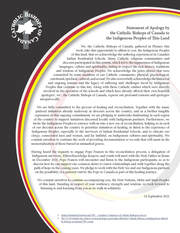 The Catholic Bishops of Canada, gathered in Plenary this week, took the opportunity to affirm and acknowledge to the Indigenous Peoples the suffering experienced in Canada’s Indian Residential Schools. Many Catholic religious communities and dioceses participated in this system, which led to the suppression of Indigenous languages, culture and spirituality, failing to respect the rich history, traditions and wisdom of Indigenous Peoples. They acknowledged the grave abuses that were committed by some members of our Catholic community; physical, psychological, emotional, spiritual, cultural, and sexual. They also sorrowfully acknowledged the historical and ongoing trauma and the legacy of suffering and challenges faced by Indigenous Peoples that continue to this day. Along with those Catholic entities which were directly involved in the operation of the schools and which have already offered their own heartfelt apologies, the Catholic Bishops of Canada expressed their profound remorse and apologized unequivocally. Together with the many pastoral initiatives already underway in dioceses across the country, the Bishops pledged to undertake fundraising in each region of the country to support initiatives discerned locally with Indigenous partners. Furthermore, they invited the Indigenous Peoples to journey with us into a new era of reconciliation, helping us to prioritize initiatives of healing, to listen to the experience of Indigenous Peoples, especially to the survivors of Indian Residential Schools, and to educate our clergy, consecrated men and women, and lay faithful, on Indigenous cultures and spirituality. They further committed to continue the work of providing documentation or records that will assist in the memorialization of those buried in unmarked graves. A delegation of Indigenous survivors, Elders/knowledge keepers, and youth will meet with the Holy Father in December 2021. Pope Francis will encounter and listen to the Indigenous Peoples, so as to discern how he can support our common desire to renew relationships and walk together along the path of hope in the coming years. The Bishops of Canada have pledged to work with the Holy See and our Indigenous partners on the possibility of a pastoral visit by the Pope to Canada as part of this healing journey. We are committed to continue the journey with the First Nations, Métis and Inuit Peoples of this land. 24 September 2021 27 September 2021
The Bishops of Canada, as a tangible expression of their commitment to walk with the Indigenous Peoples of this land along the pathway of hope, are making a nation-wide collective financial commitment to support healing and reconciliation initiatives for residential school survivors, their families, and their communities. With a target of $30 million over up to 5 years, this will include initiatives in every region of the country. The commitment will be achieved at the local level, with parishes across Canada being encourage to participate and amplify the effort. |
Author
Catholic Pastoral Centre Staff and Guest Writers Archives
July 2024
Categories
All
|

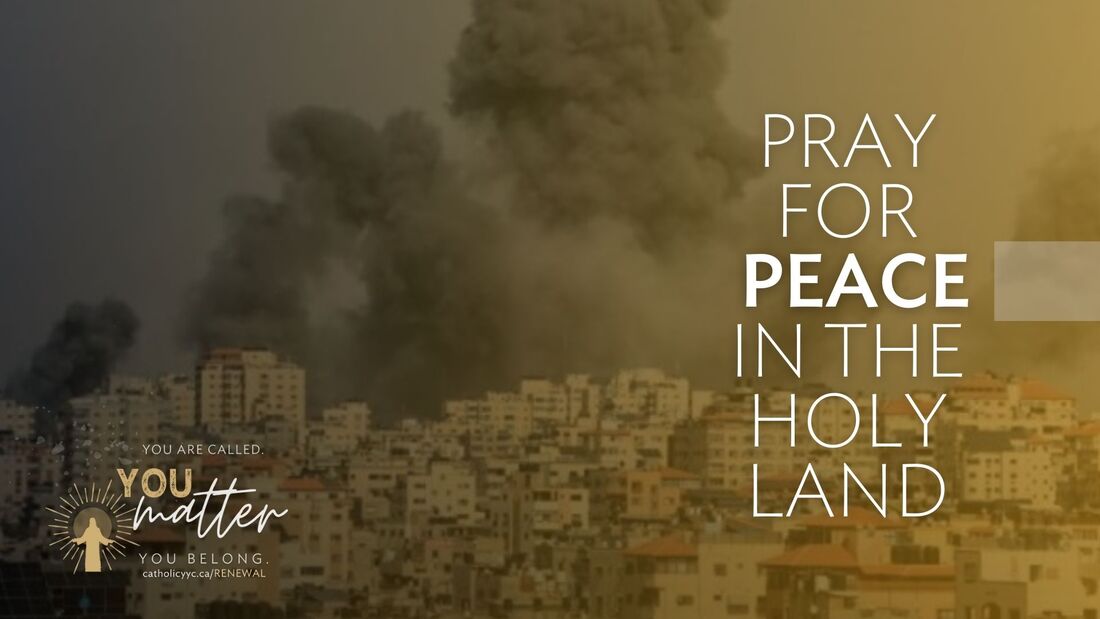
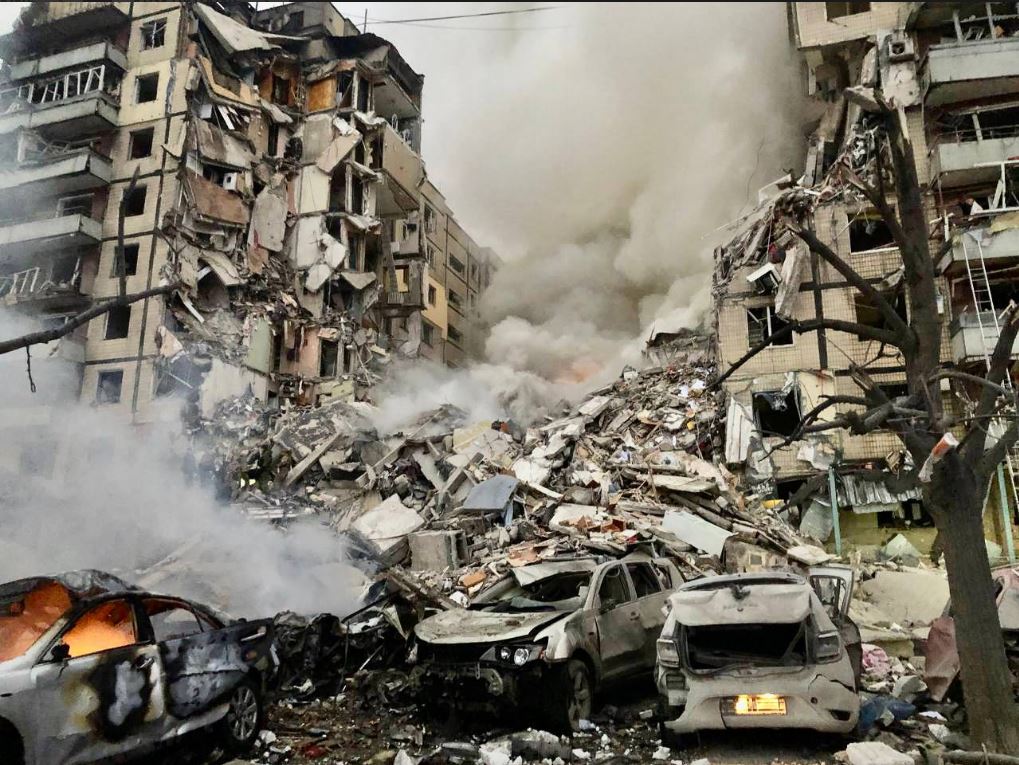

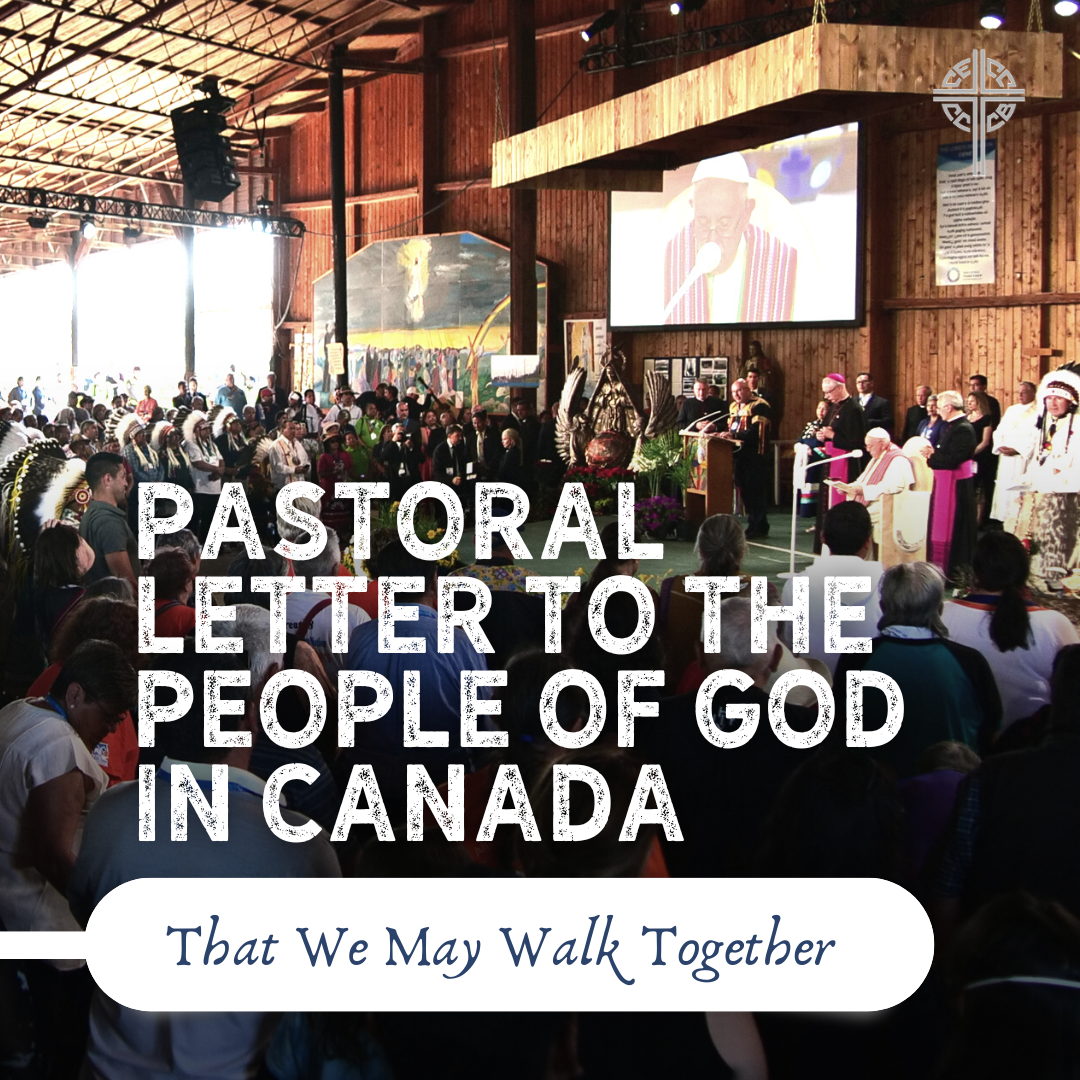
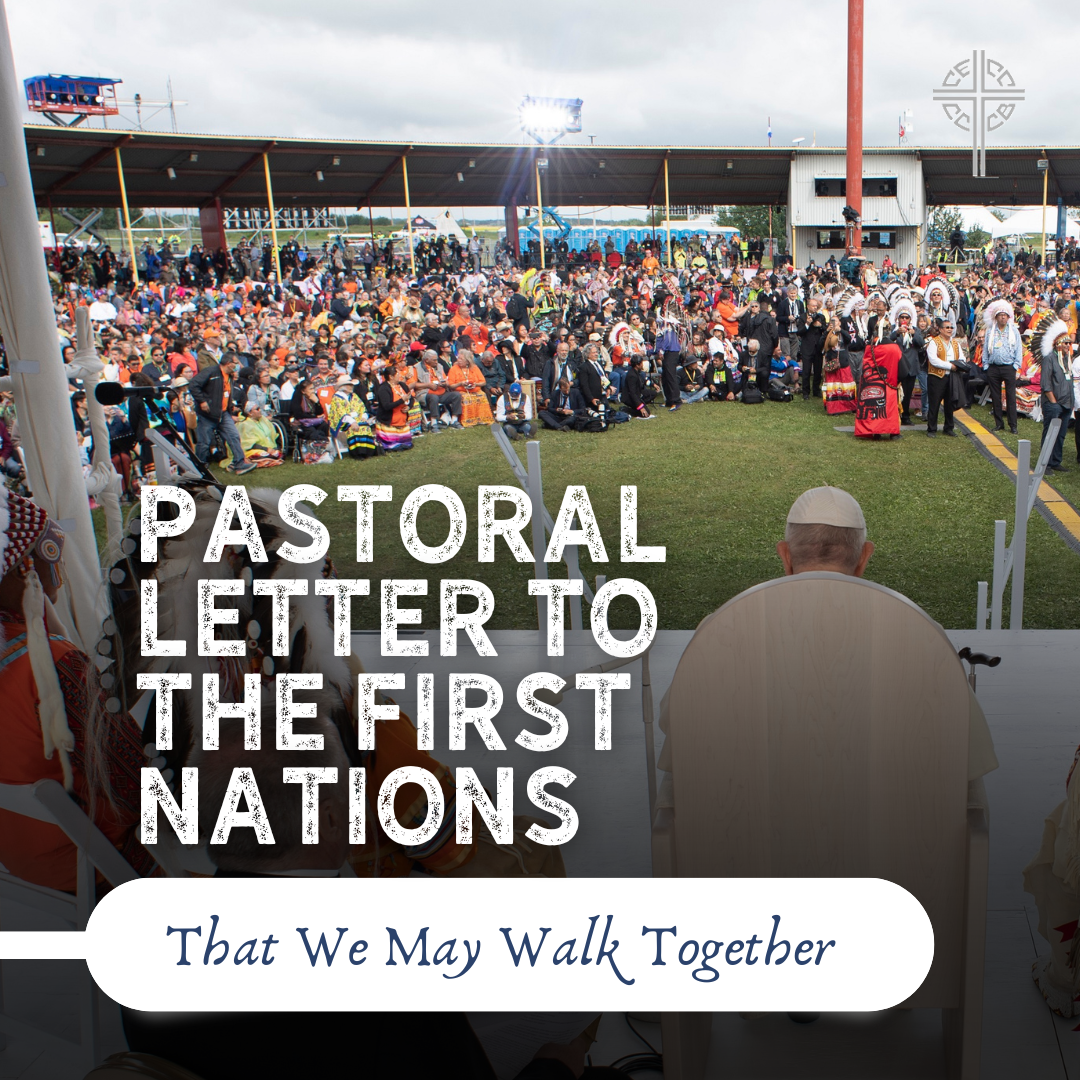
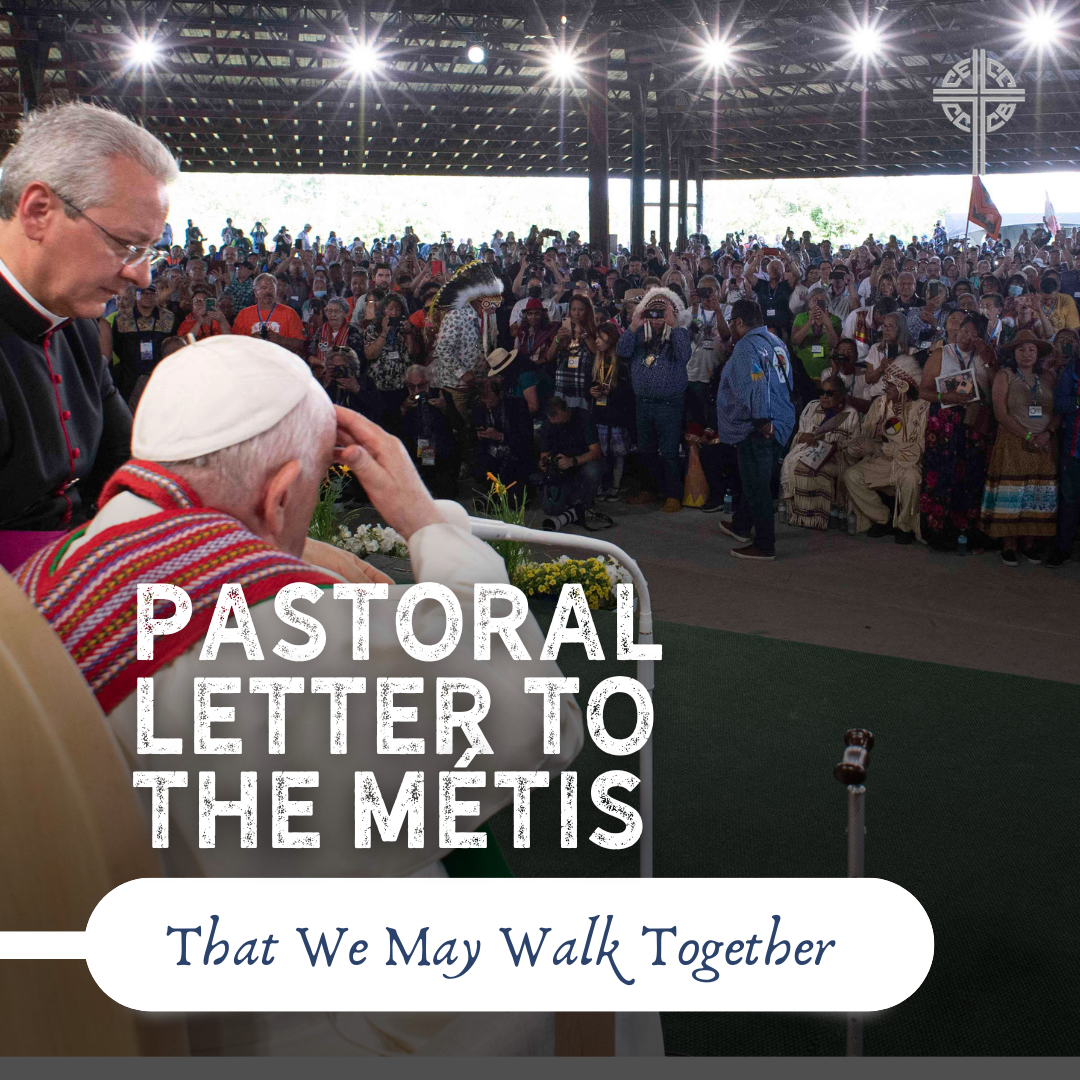
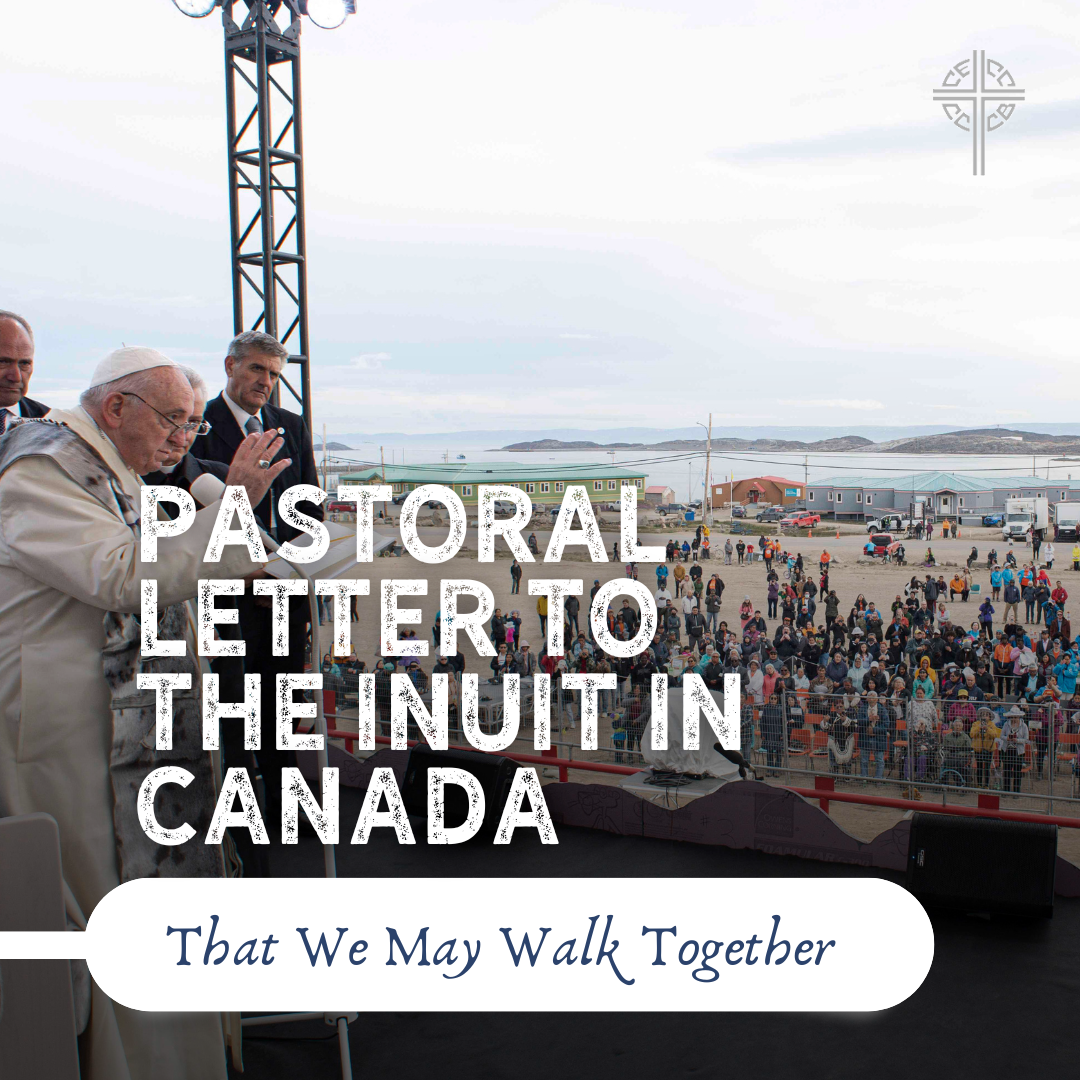
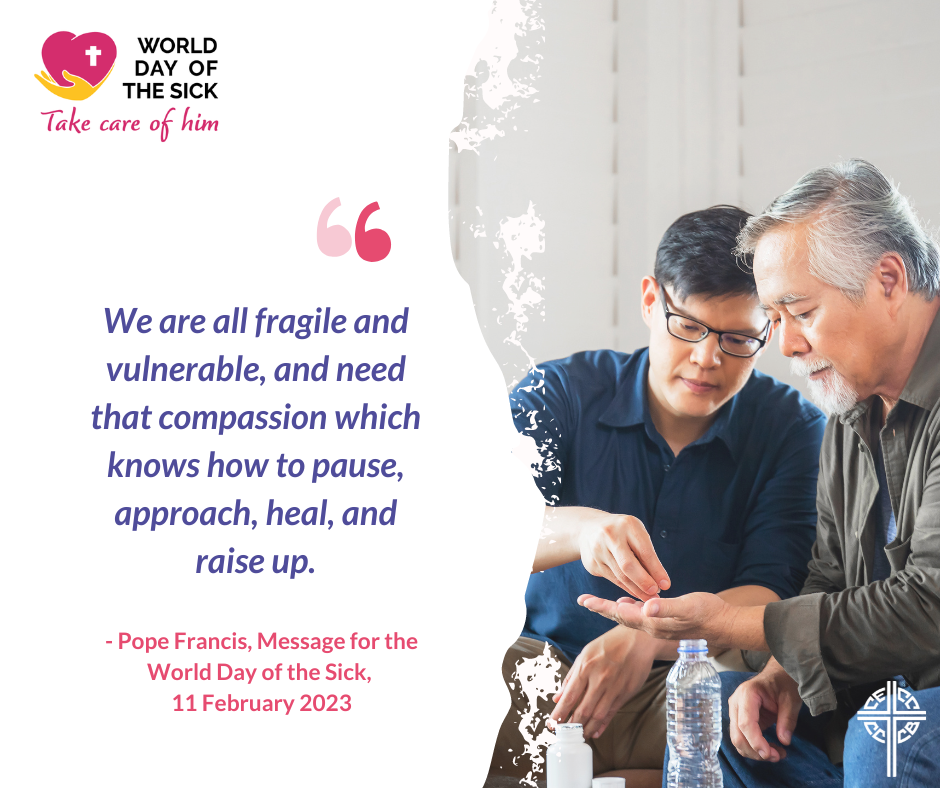

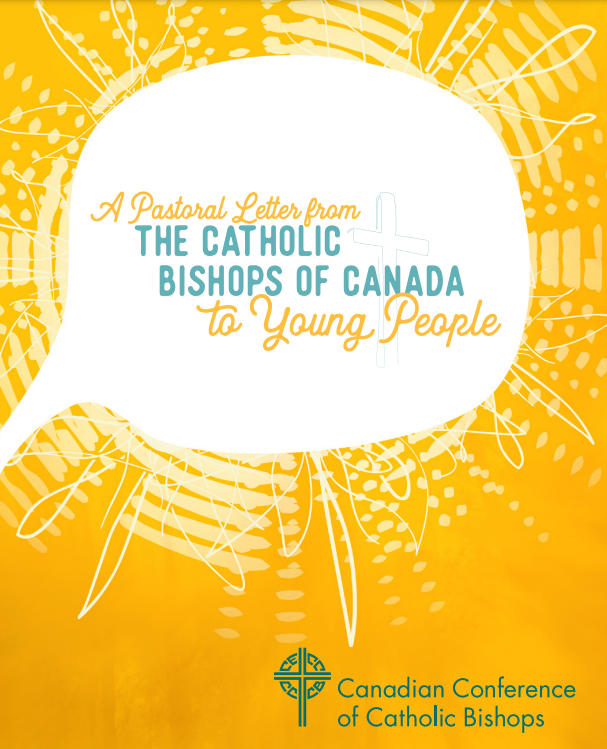
 RSS Feed
RSS Feed